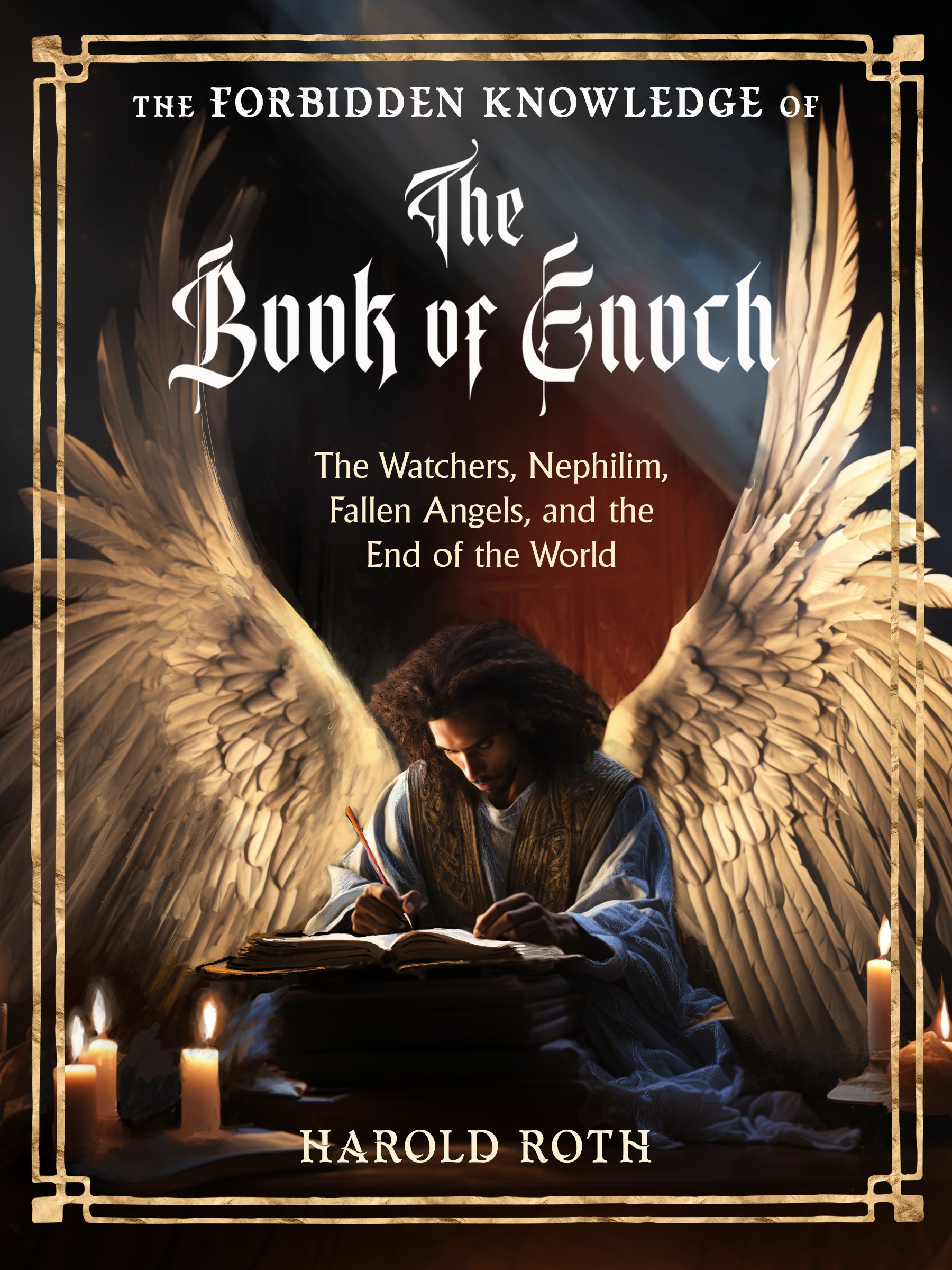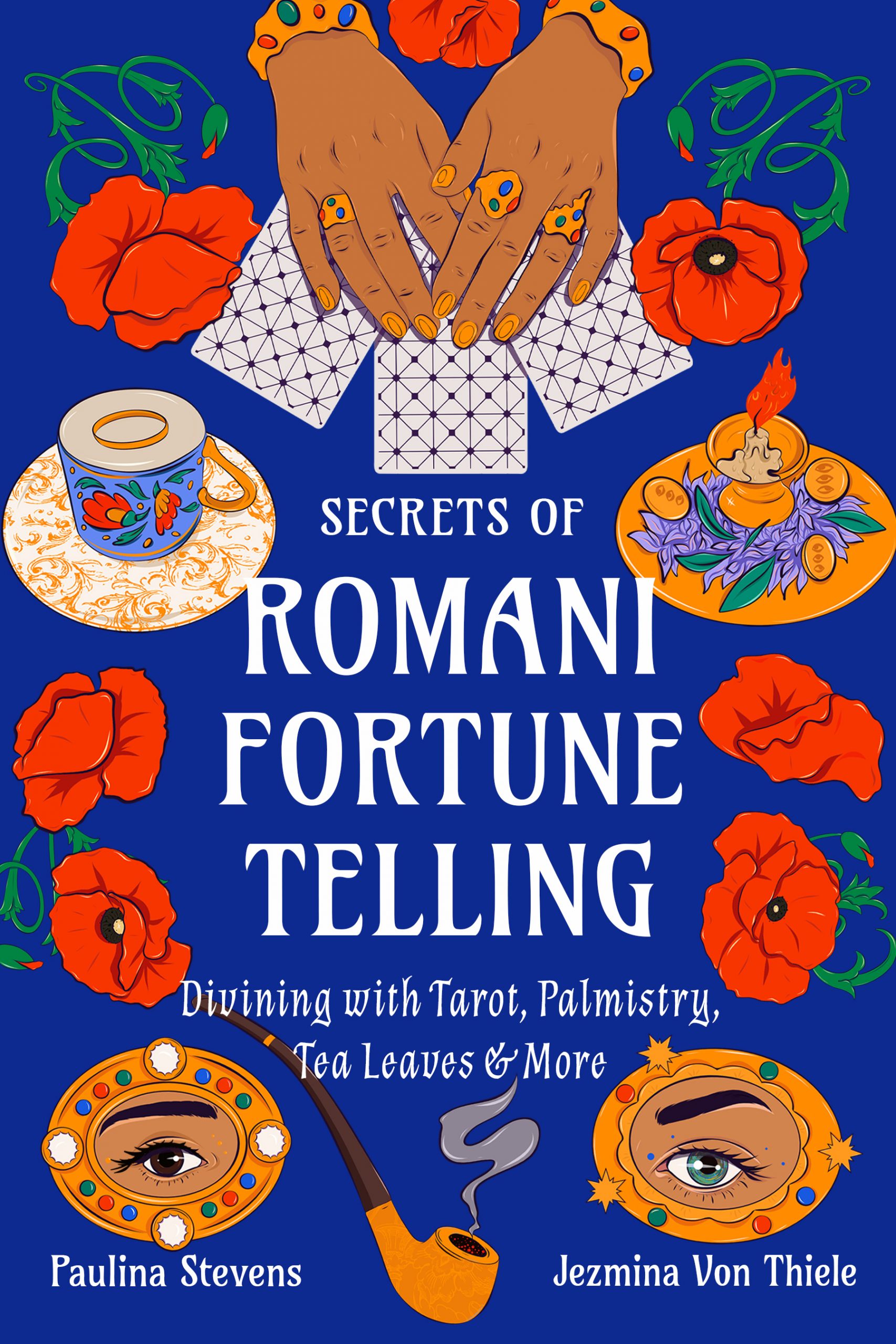An Excerpt from “The Forbidden Knowledge of the Book of Enoch” by Harold Roth
There is not a lot of information available about Judaism in the 4th and 3rd centuries BCE, which is when the oldest sections of The Book of Enoch were written, mostly because there was so much turmoil in that time period—wars, for instance. Alexander the Great had conquered the region in 332 BCE, which led to a highly disruptive Hellenization10 of Judaism and Israelite society.
At the same time, there was a revitalization of the sacrificial cult on account of the Second Temple being built soon after the Zadokite priesthood returned from Babylon in 538–515 BCE. We know that two sections of The Book of Enoch were written during that time: The Watchers and The Astronomical Book. These were originally separate books, and many scholars further believe that The Watchers was composed of at least two (Shemihazah and Asael) or even more ancient books or stories, which have been lost to us. The time between 513 BCE to 70 CE is called the Second Temple period. The Book of Enoch as a whole, the result of at least five older books being compiled, is a product of this period.
Apocalyptic Works
Apocalyptic works were mostly written during the period after the return of a large group of the Jerusalemites from Babylonian exile in 538 BCE. A number decided to stay there and went on to write one version of the Talmud—the Babylonian Talmud as opposed to the Jerusalem Talmud. (The Jerusalem Talmud was written in Aramaic in the Land of Israel (in Tiberias and Caesarea). It includes the same version of the Mishna as the Babylonian Talmud but then contains notes on the oral teachings of the Rabbis of the Land of Israel.) The apocalyptic works typically forecast some momentous event to happen after a particular length of time, and usually that event was equal to either a reset of society or a cataclysmic overturning of the old and institution of the new, perhaps even an end of the world. The Book of Enoch and Daniel both contain sections that are considered to be apocalyptic. The most famous Christian apocalypse is the Book of Revelation, written in Greek between 81–96 CE. It is now part of the Christian scriptures, although whether it should be part of the Christian canon has been controversial.
In the past, scholars believed that apocalyptic books were produced by the enormous social strains of the Maccabean rebellions (167–160 BCE), but we know now that at least a couple of the books that comprise The Book of Enoch were written long before that time.
Early History of Enoch
The Watchers (Enoch 1-36) and The Astronomical Book (Enoch 72–82) are the oldest Jewish religious works outside of the Hebrew Bible and the oldest examples of apocalyptic writing. They were most likely originally composed in the 4th through 3rd centuries BCE. Traditionally, studies of Enoch have considered The Watchers to be the oldest part (maybe because it is the only part that doesn’t actually even mention Enoch), but nowadays more scholars say The Astronomical Book is the oldest section.
The entirety of The Book of Enoch had been put together (from five different books) at the beginning of the 2nd century BCE. When actual fragments of an Aramaic version of Enoch were found at Qumran between 1951–1976, there was proof of not only when it was written (based on the lettering, ink, and type of scroll it was written on) but that it was at least partially written in Aramaic. The only problem with this is that JT Milik, who found and published these fragments, perhaps added bits here and there and mistranslated some parts. Some Hebrew fragments from the part of the book relating to Noah have also been found at Qumran.
This is important because Hebrew was the national language of the Hebrew people until the exile to Babylon, where the elite of Jerusalem adopted a version of Aramaic (Jewish Babylonian Aramaic) that was one of the two primary languages of Babylon. They brought this version of Aramaic back to Jerusalem with them, following their return from exile, but nationalist forces, reacting to the imposition and growth of Hellenism, as mentioned earlier, began using Hebrew again. It’s definitely possible timewise that Enoch was originally composed in Hebrew.
Altogether, seven Aramaic copies of The Watchers, Book of Dreams, and Epistle of Enoch were found at Qumran. These copies were composed from late 200 BCE to the beginning of 100 BCE, with some having been copied during the time of Herod the Great (37 BCE–4 BCE). That would make some parts of Enoch older than Daniel, which was written in the 2nd century BCE and composed partly in Aramaic and partly in Hebrew. The Astronomical Book and The Watchers were available separately in the 3rd and 2nd centuries BCE in the Land of Israel. Scholars have concluded that The Book of Enoch as a whole was written in Judea in the Land of Israel. This is important because in the past, many believed that Enoch was written in Qumran, which is in the Judean Desert on the shores of the Dead Sea. However, Qumran didn’t come into being until long after Enoch was written, so we know it didn’t originate there; it was just a text that was often copied there. Fragments of all the parts of Enoch were found at Qumran except one: Similitudes, the last book included in Enoch.
The Watchers, one of the two oldest parts of The Book of Enoch, was written in Judea right after Alexander the Great conquered it in 333–323 BCE and during the wars of the Diadochi —those who succeeded Alexander, in 323–302 BCE. The Watchers doesn’t show much anti-Hellenism, as the resistance to Hellenism had not yet had much time to take hold and remake Judaism in its own image. These were tough times, but nowhere near as difficult as the time period that produced the later texts, The Book of Dreams and the Epistle of Enoch, which came about around the time of the Maccabean Revolt. At that time, Antiochus IV completely disrupted the Temple cult and outlawed traditional Judaic practices, probably with help from some of the Jewish elites who were influenced by Hellenism. You can imagine the divisions that existed in that situation.
The Watchers was most likely produced by the scribes of the Temple of Jerusalem. The influence of this work would grow for both Jews and, later, Christians, especially in terms of how they conceptualized the world before the Flood. Most readers did not accept its idea that evil came into the world due to the actions of a group of angels, but the story of the descent of the Watchers was important to Jews interpreting Genesis 6:1-4, especially before the rise of Rabbinism. The Jesus Movement also embraced The Book of Enoch, and early Christians took up the book as well. The Book of Enoch kept on being popular with early Christians, who took it in new directions that were pertinent to their belief system, focusing more on the figure of Enoch as one of individual salvation. They also gave much more importance to the demonic aspects of the Watchers and the Nephilim.
The Rabbis abandoned The Book of Enoch. They said that the sons of God were humans, not angels, and that Enoch was just a human being; he had never been physically lifted up to Heaven. They argued that the statement about God taking him up to Heaven only meant that Enoch had died a normal human death. The rejection of this book was one of the ways that the Rabbis drew a line between themselves and the Jesus Movement. They didn’t even mention Enoch until after the Talmud was completed, which was several centuries later.
Around that same time, the third and fourth centuries CE, Christians began rejecting The Book of Enoch also, especially once the Roman Empire was Christianized. They kept it out of the canon of Christian scripture and they no longer interpreted Genesis 6:1–4 as being about angels. Enoch was still being read by Christians in Ethiopia and Egypt, but because Christians attacked it, it was “lost” in the West for centuries. In Christianity, it was preserved mostly in quotes, and in Judaism by movements that had more of an interest in magic and mysticism, such as the Hasidei Ashkenaz.
Is Enoch Fringe? No.
In the past, scholars thought that all the early Jewish apocalypses were written by groups that were cut off from the mainstream of Judaism. These imagined groups were seen as anti-establishment, maybe people who’d gathered around a particular prophet and who were engaged in attaining and keeping hidden knowledge secret and out of the hands of the mainstream and the authorities.
Powerlessness was considered to have been central to these books, the implication being that when you have no power, your imagination lifts you out of how pinched your life is. Daniel, which is partly an apocalyptic work, did arise out of oppression, and we might say that Revelation also arose from disenfranchisement, but this doesn’t apply to all sorts of other apocalyptic texts. Various people in modern times thought that visionaries passed down their wisdom secretly; this was due mostly to the influence of the famous scholar of Jewish mysticism, Gershom Scholem, who thought secret knowledge that was passed down orally was responsible for how particular ideas might turn up in Jewish writing either without any apparent predecessor or seemingly unconnected in any clear way to the past history of ideas in Judaism. The problem with orally passed-down knowledge is that there is no way to say what it was or if it ever existed, and “oh, it was passed down orally and secretly” is not proof.
People have looked for the missing evidence that, for instance, the two oldest parts of Enoch—The Watchers and The Astronomical Book—were the products of even a particular group, and they didn’t find it. There is no particular terminology that identifies these two parts of Enoch with any group that we know. No special terms are used that don’t also occur in plenty of other texts.
The other issue we run into when we try to figure out where a particular text came from is that we don’t really know, most of the time, who wrote it, edited it, copied it, read it, responded to it, interpreted it, and preserved it. We can’t even look at whether a text was made part of the Jewish or Christian canon and say, “it wasn’t included, so it’s edgy” or “it was included, so it’s not problematic.” Being outside the canon doesn’t mean the work is anti-authoritarian or full of secret knowledge. It might be, but just being outside the canon doesn’t make it so. We should be wary of the idea that because a work is outside of the mainstream that it contains secrets or is anti-authoritarian. A work’s secrets might not even be apparent on its surface, or the keys to unlock its meaning might have been lost, their context forgotten.
We can’t even claim that Enoch was a Gnostic text; the Gnostics never mentioned it, and people who attacked Gnostic Christianity wrote about Enoch positively. In fact, the Christians who wrote about it the most were dry-as-toast, rational chronographers who were interested primarily in simply recording history.
—Harold Roth, Chapter Two: Jewish History and Apocalyptic Works, Copyright © 2024
Featured Book
The Forbidden Knowledge of the Book of Enoch
The Book of Enoch has captured and commanded interest for the past two thousand years. Sometimes part of religious canon and doctrine, and sometimes outright banned, the Book of Enoch is more popular today than ever. Still many questions remain. Who was Enoch?


